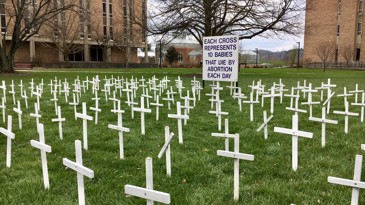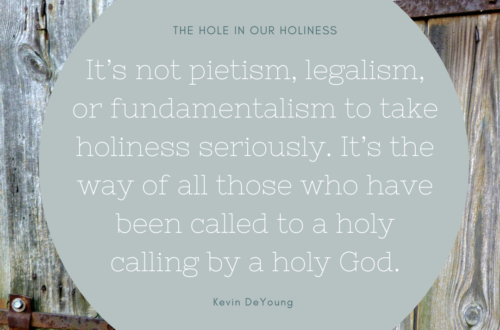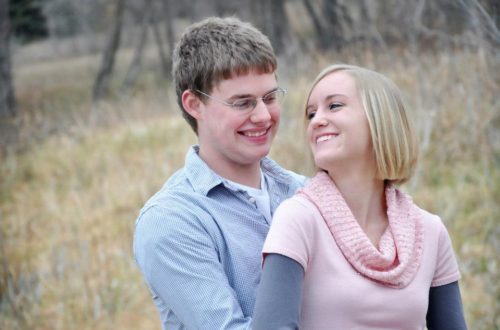
Where it All Began
Have you ever been lost in a page-turning, stay-up-until-2am novel and wondered how in the world the author came up with such a story? Perhaps, once finished with it, you closed it and thought to yourself, where do the words come from?
It’s a question I get asked from time to time. Now, I’m not claiming that I wrote such a gripping novel—although, if you tell me it kept you up until 2am because you just had to know what was going to happen next, I will get all giddy with excitement. But when people hear that I write novels—novels that are 30 chapters long—most can’t help but wonder how?
I remember thinking the same thing when Another Ending was just a story swirling around in my head and my fingers were itching to capture it on paper. For the longest time, I held back from sitting down to type that story out because I was convinced that I would only get a few words in and then get stuck.
Of course, I’m thrilled that I didn’t get stuck. Once I began, the words just kept coming. And coming. Maybe other writers have more of a writing process that they follow, but for me, I usually just follow where the story takes me. I love when the story takes a turn that I never intended it to have! For me, writing is an adventure—I’m never quite sure where these storylines will go.
Every story has an origin, though. This concept is usually tied to superheroes and comic book characters; Dictionary.com defines the word origin as “a backstory, or established narrative, that informs the identity and motivations of heroes and villains in a comic book or similar fictional work.” Another Ending is my protagonist Molly’s origin story. But the story itself has an origin, and I wanted to share that with you today in this post. Because all these words must start somewhere.
An Idea Is Born
Publishing a book has been a dream of mine since childhood. When introduced to the Contemporary Christian Fiction author Karen Kingsbury in middle school, I quickly devoured as many of her books as I could, and I knew that someday, I would publish in this genre too. I just needed the story.
A topic idea began swirling in my head during track workouts the spring of my junior year in high school, and it followed me along countless miles that summer as I trained for the upcoming fall cross country season: when I had time to write my novel, I would write about abortion.
At this point, you might be wondering why in the world a seventeen-year-old girl would want to write about such a hot button issue. But this issue has gripped me since childhood—I have a very distinct memory of driving past the Knights of Columbus building in my hometown, asking my mom why they had stuck so many little white crosses into the ground. It would have looked something like this:

Each cross in this picture represents 10 babies lost to abortion each day in the United States. Although I don’t remember the exact words my mom used to explain this to me as a kid so it wouldn’t completely horrify me, I do remember a weight settling over me as I began to learn about abortion.
That weight has never lifted over the years, and although abortion is a difficult and sensitive subject to discuss, as followers of Christ I don’t think we have the option of avoiding it. Not only because of the countless lives that are lost to this practice every year, but because of the damage it inflicts upon so many women—and their partners and families, too. According to Guttmacher Institute, as of 2014, 1 in 20 women will have an abortion by age 20, about 1 in 5 by age 30, and about 1 in 4 by age 45. 1 in 4. These are women we come into contact with every day; women who may be deeply hurting because of the choice that they made. Women who need love, compassion, and support as they seek healing.
Unfortunately, not everyone in the pro-life movement champions for this cause in a loving, Christlike way. It has broken my heart to see hateful comments hurled towards those in the pro-choice community, and even at women who have had abortions. This is not an effective tactic, friends. And it’s why I decided that not only would I write about a young woman who has an abortion, but that her baby would be conceived out of sexual assault. I did this for three reasons:
1. To Challenge the Pro-Life Community
Women who choose to get abortions and those in the pro-choice community are not monsters, as the pro-life community often make them out to be. While money may be at the heart of the abortion industry, the pro-choice community itself does care deeply for women and believes that abortion is an empowering decision that eliminates many of the complications that an unplanned pregnancy brings. Some of the complications these women face include lack of health insurance, living in poverty, multiple other children they are struggling to support already, and domestic violence situations. Can you see how a terrified young girl could choose to end her pregnancy when she stops to consider how she will solve these big problems? For the cost of a few hundred dollars she can terminate her pregnancy, and the financial burden is lifted. She can escape from the pain of a sexual attack. She can go about her life.
2. To Challenge the Pro-Choice Community
Is it possible for a woman to end her pregnancy and simply go about her life, though? Does abortion truly empower women? Perhaps for some. But isn’t it a little ironic that something that is supposed to empower a woman so often begins by telling her what she can’t do? In Another Ending, you will read about a clinic worker challenging a character who is considering getting an abortion, asking her how she will support a baby without a high school diploma or the help of her family and friends. While wise to think through these obstacles—we need to be realistic about the complexity of an unplanned pregnancy—is abortion the only, or best, option for women? There are hundreds of crisis pregnancy centers across the country that are eager and willing to connect women to the resources and programs they need to support themselves and their babies—to lead them to community agencies to fill gaps and help them sign up for programs such as Medicaid, Food Stamps, and WIC (Women, Infants, and Children—a program that provides money for healthy food and formula for low-income families). Unplanned pregnancy is scary, and it brings a host of difficult challenges—but those challenges are not insurmountable. With a little support and connecting to resources, women are fully capable of parenting. Doesn’t coming alongside women and encouraging them that they can parent seem more empowering than convincing them that they can’t?
3. To stir compassion and understanding within both sides of this issue
We may disagree on what is truly empowering to women. That’s okay. But what I see most often in the pro-life/pro-choice debate is a lack of understanding and compassion. The pro-life community often views abortion as a black-and-white issue, failing to see the heart-wrenching complications that so often accompany an unplanned pregnancy. Complications like becoming pregnant through a sexual assault. In Another Ending you will step into the shoes of a terrified young rape victim, giving you a small taste of what that might feel like—the humiliation, the fear, the desperation. And if you consider yourself pro-life, I hope it stirs compassion and understanding within you.
But you will also see the emotional side effects that often accompany abortion. Yes, some women will walk away from their abortions and continue on with their lives. Yet, countless others will carry deep regret, guilt, and sadness for the rest of their lives after their abortions. If you consider yourself pro-choice, I hope this challenges your definition of empowerment and stirs the same compassion and understanding within you.
A Shift in Focus
My main goal when I set out to write Another Ending was to challenge the pro-life and pro-choice communities as well as to stir compassion and understanding on both sides. But when I set out to re-vise and re-publish the story, the goal challenged. This became less of a story about Molly and the heartbreak she faces and more of a story of Jesus and how he gently and tenderly pursues her heart. Because one thing the Lord has been showing me since becoming a parent and teaching the Bible to my kids is that all stories are stories are about Him. And if I’m going to spend over 200 hours working on a manuscript (according to Microsoft Word, I spent 218.23 hours working on the manuscript for Another Ending) I want it to be filled with Him. I want it to showcase His unfathomable love, mercy, and grace. If the story challenges you and stirs compassion in your heart, I will rejoice over that! But if the story of the Cross blows you away and turns your heart towards Him, I will rejoice with you.
This is more than a story of sexual assault and abortion.
This is a story of Him.
If I should speak then let it be
Of the grace that is greater than all my sin
Of when justice was served and where mercy wins
Of the kindness of Jesus that draws me in
Oh to tell you my story is to tell of Him




